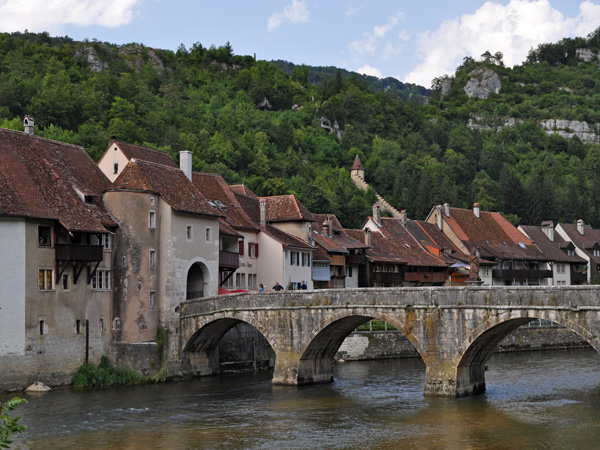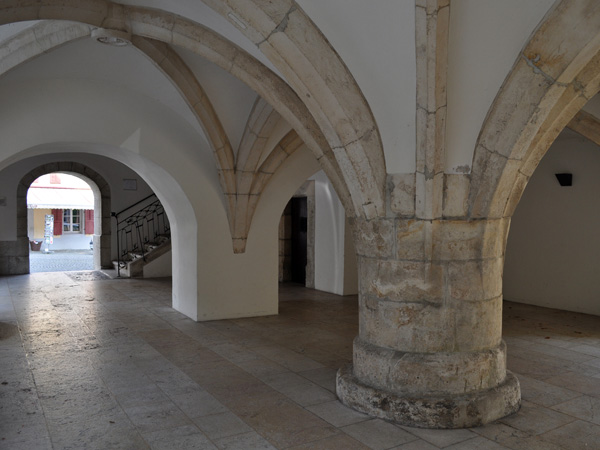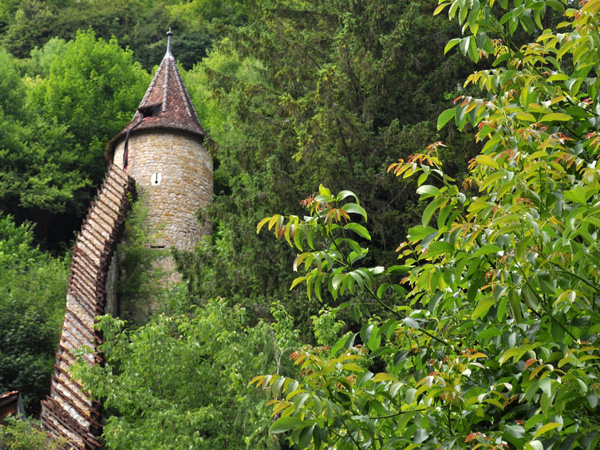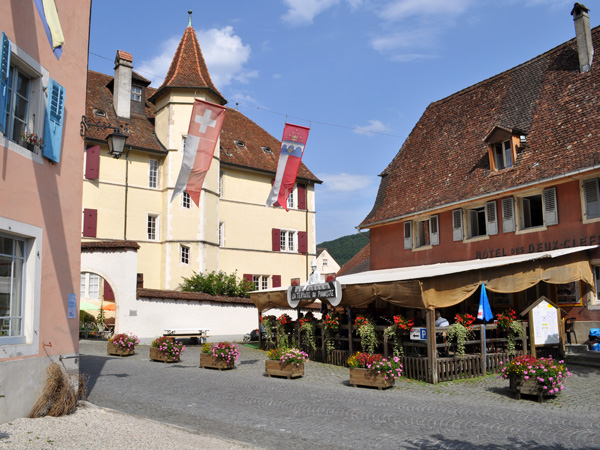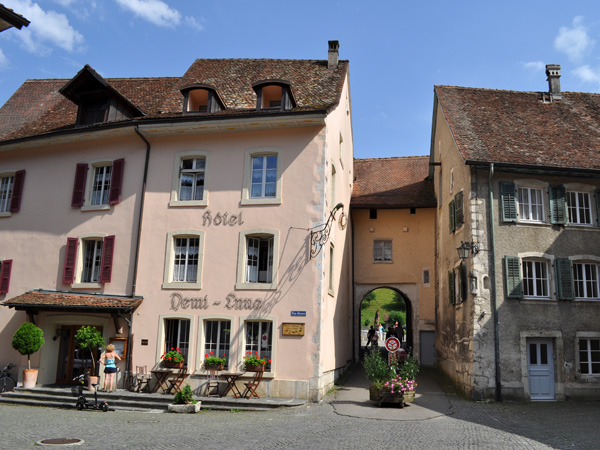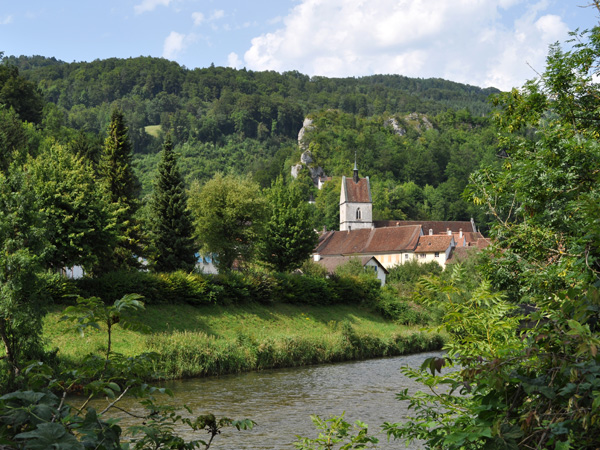Saint-UrsanneSaint-Ursanne, situated where the Doubs River makes a loop before flowing into France, has preserved its medieval character and features many historical curios, like collegiate churches, cloister, castle ruins, and a hermitage.
Saint-Ursanne
Along with Delémont, 19 km away, and Porrentruy, 15 km away, Saint-Ursanne is part of the Jura trio of historic towns and has managed to preserve its medieval charm.
Situated in the Clos du Doubs, where the tranquil Jura river loops before flowing into France, Saint-Ursanne is a very small, charming and picturesque town of less than 1000 inhabitants.
It has preserved its medieval appearance, enclosed between the gates of Saint-Paul to the east, Saint-Pierre to the west and Saint-Jean to the south, with its old four-arched bridge over the Doubs, dedicated to Jean Népomucène (patron saint of boatmen and bridges), built in 1728.
The old town has changed very little over the last few centuries: bourgeois houses from the 14th to 16th centuries, an abbey founded by Benedictine monks, with its Romanesque basilica dating from the 12th century and its cloister. The south portal of the collegiate church, which dates from around 1200, is one of the most outstanding works of Burgundian Romanesque architecture in Switzerland.
According to legend, the small town owes its name to Ursan, a hermit of Irish origin who died in the 7th century. His hermitage, a cave, is located at the top of 180 steps of a steep staircase.
Situated off the main communication routes, the town only came out of its isolation in 1877, when a railway line was built between France and Switzerland, while it was the opening in 1998 of the first section of the A16 Transjurane motorway that put an end to its relative isolation by road, making St-Ursanne a very attractive and accessible tourist destination.
CONTACT ADDRESS- Jura Tourisme
Place Roger Schaffter
CH-2882 Saint-Ursanne
USEFUL LINKSSWISS CANTONOUR PANORAMIC GUIDE
This guide features more places in the same region, check them out!
©
fusions.ch 1988-2025
All rights reserved for all countries

